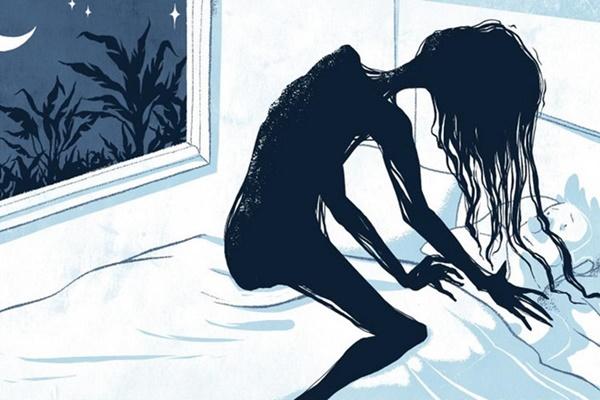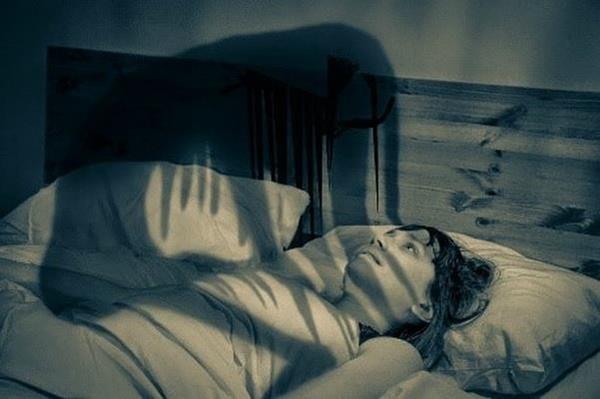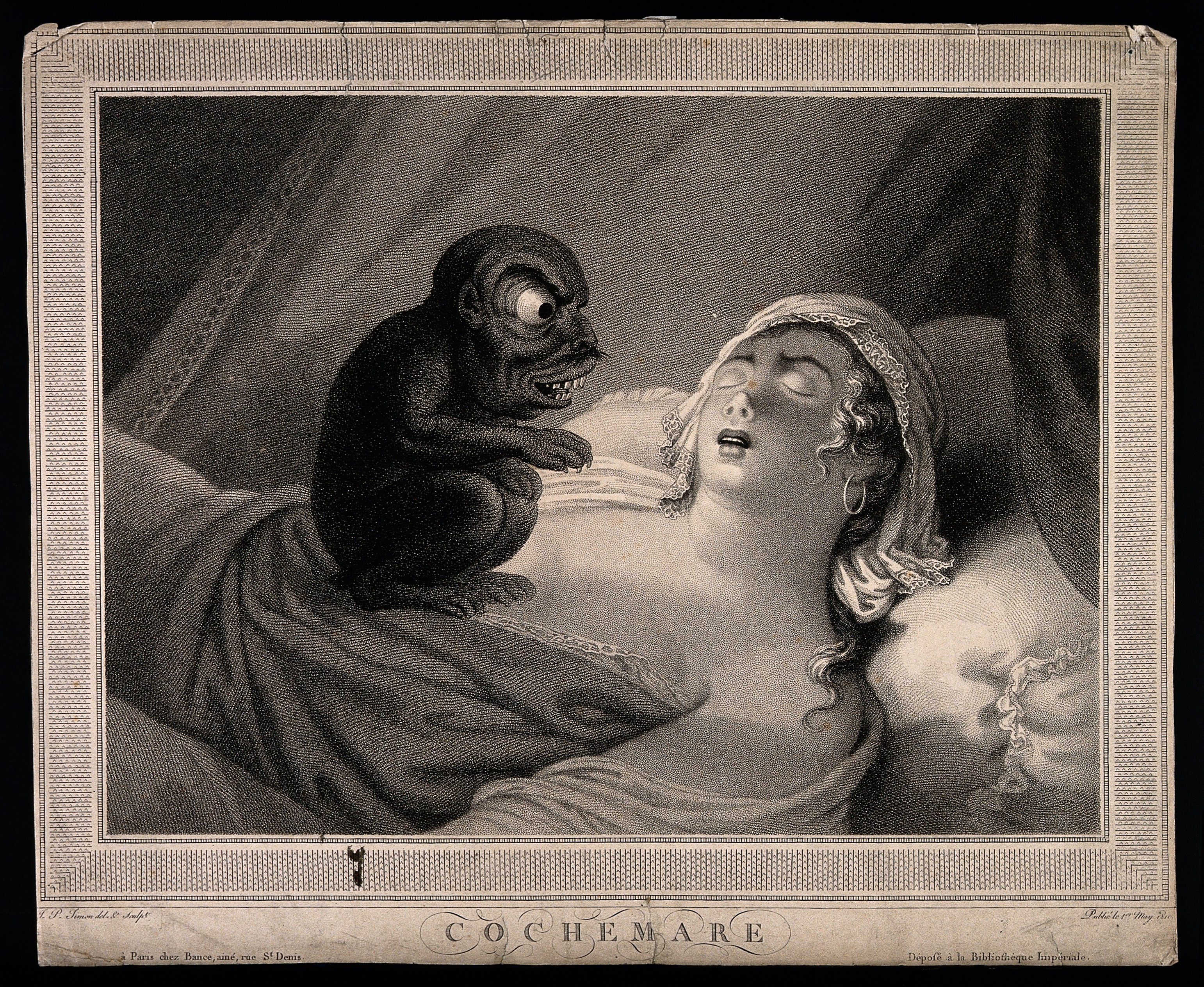Different creature same M.O.
In Scandinavian folklore, sleep paralysis is caused by a mare, a supernatural creature related to incubi and succubi. The mare is a damned woman, who is cursed and her body is carried mysteriously during sleep and without her noticing. In this state, she visits villagers to sit on their rib cages while they are asleep, causing them to experience nightmares.
Folk belief in Newfoundland in Canada and South Carolina and Georgia in the United States describe the negative figure of the hag who leaves her physical body at night, and sits on the chest of her victim. The victim usually wakes with a feeling of terror, has difficulty breathing because of a perceived heavy invisible weight on his or her chest, and is unable to move i.e., experiences sleep paralysis. This nightmare experience is described as being "hag-ridden" in the Gullah lore.
In Tibetan culture, sleep paralysis is often known as dip-non (གྲིབ་གནོན་ - Kham) or dip-phok (གྲིབ་ཕོག་ - Ladakh), which translates roughly as "oppressed/struck by dip"; dip, literally meaning shadow, refers to a kind of spiritual pollution.
In Vietnamese culture, sleep paralysis is called ma đè, meaning "held down by a ghost," or bóng đè, meaning "held down by a shadow."
In Philippine culture, bangungot has traditionally been attributed to nightmares.Bati bat or bangungot has been believed to takes on a form of grotesque, obese woman who sat on her victim's chest. People who claim to survive such nightmares report symptoms of sleep paralysis.
In Turkish culture, sleep paralysis is often referred to as karabasan ("the dark presser/assailer"). It is believed to be a creature that attacks people in their sleep, pressing on their chest and stealing their breath.
In Swahili speaking areas of Southeast Africa, it is known as jinamizi ("strangled by jinn"), which refers to a creature sitting on one's chest making it difficult for him/her to breathe. It is attributed to result from a person sleeping on his back. Most people also recall being strangled by this 'creature'.
In Finnish folk culture sleep paralysis is called unihalvaus (dream paralysis), but the Finnish word for nightmare, painajainen, is believed to originally have meant sleep paralysis, as it is formed from the word painaja, which translates to pusher or presser, and the diminutive suffix -nen.
In Hungarian folk culture sleep paralysis is called lidércnyomás (lidérc pressing) and can be attributed to a number of supernatural entities like lidérc (wraith), boszorkány (witch), tündér (fairy) or ördögszerető (demon lover). The word boszorkány itself stems from the Turkish root bas-, meaning "to press."
In Brazil, there is a legend about a mythological being called the pisadeira ("she who steps"). She is described as a tall, skinny old woman, with long dirty nails in dried toes, white tangled hair, a long nose, staring red eyes, and greenish teeth on her evil laugh. She lives over the roofs, waiting to step on the chest of those who sleep with a full stomach.
In Thailand it is believed that sleep paralysis and discomfort is caused by a ghost of the Thai folklore known as Phi Am (Thai: ผีอำ).Some people claim that this spirit may even cause bruises.

 The Nightmare
The Nightmare, by Henry Fuseli (1781)






